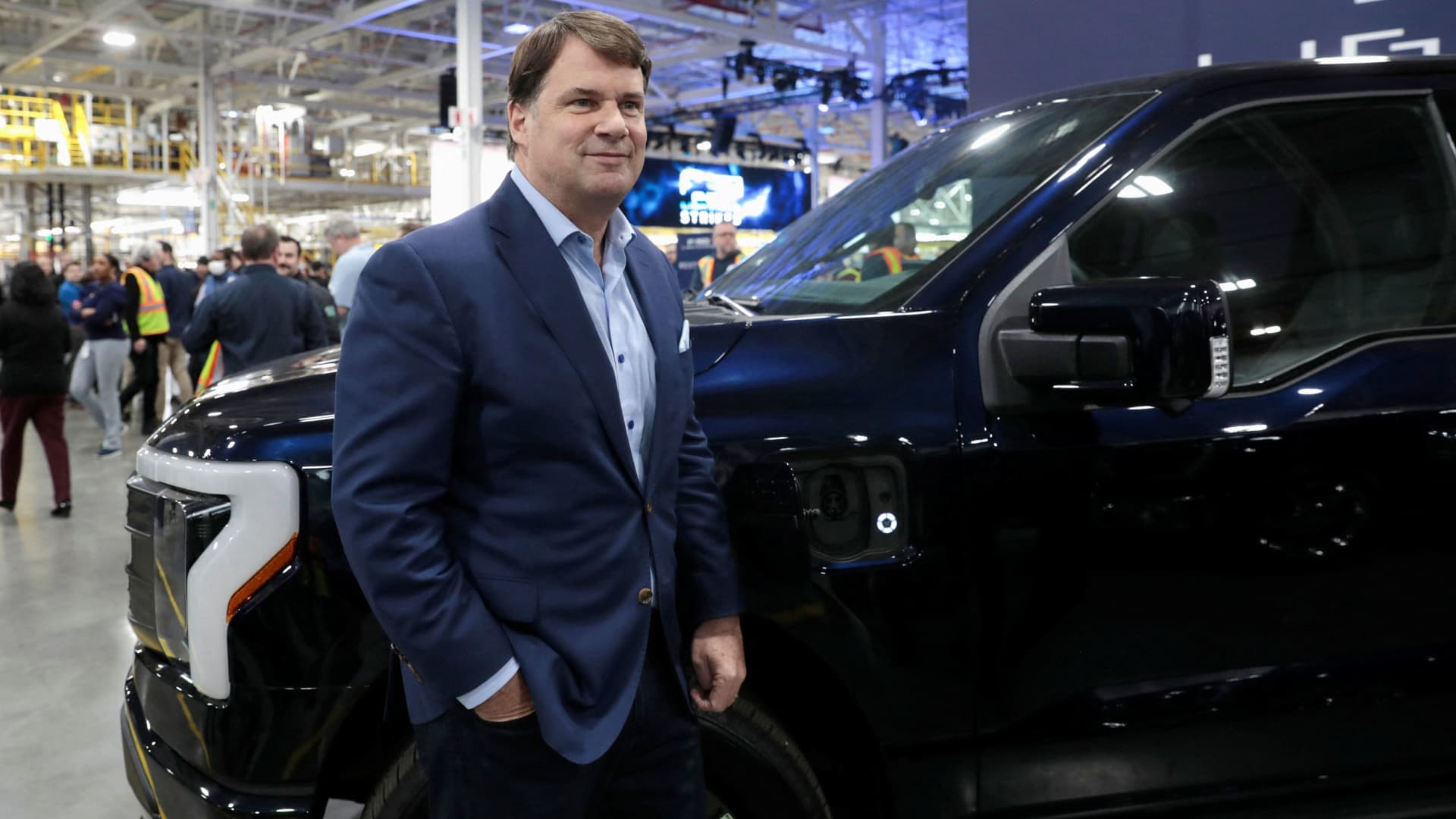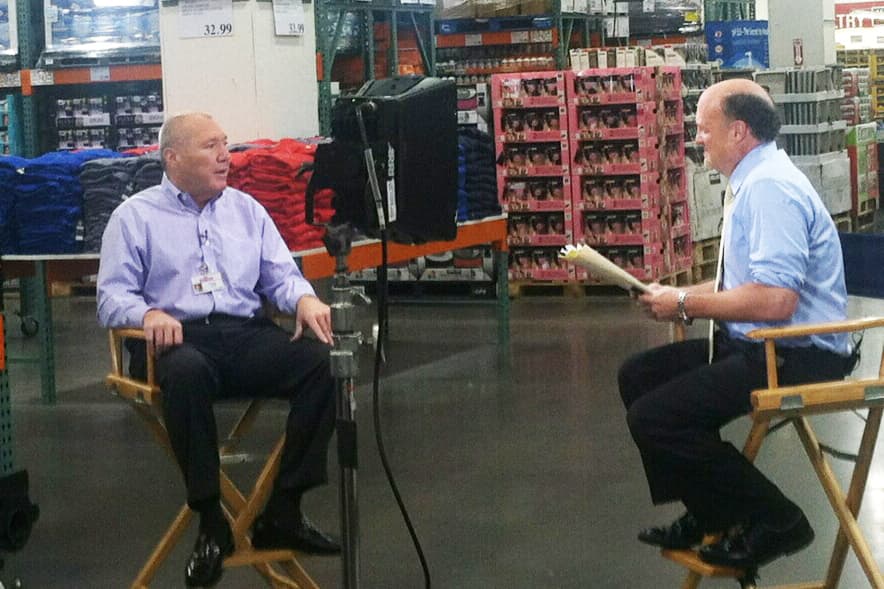LAS VEGAS – Ford Motor is asking its nearly 3,000 dealers to invest upward of $1 million in upgrades to sell all-electric vehicles, as the automaker attempts to cut overhead costs and boost profits at its retailers to better align EV-leader Tesla.
Ford is offering its dealers the option to become “EV-certified” under one of two programs — with investments of $500,000 or $1.2 million. Dealers in the higher tier, which carries upfront costs of $900,000, will receive “elite” certification and be allocated more EVs, executives said.
related investing news
Dealers have until Oct. 31 to make a decision and until the end of the year to make the investments.
It’s an effort to elevate Ford dealers as the company seeks to grow sales across its traditional and commercial businesses as well as EVs. Tesla and other electric vehicle startups sell directly to consumers without franchised dealers.
“We’re betting on the dealers. We’re not going to go direct. But we need to specialize,” CEO Jim Farley told reporters Tuesday after briefing dealers about the plans. “The main message I have for the dealers, which I’ve never said before, because I didn’t believe it was true, is that you could be the most valuable franchise in our industry.”
Ford’s plans to sell EVs have been a point of contention since the company split off its all-electric vehicle business earlier this year into a separate division known as Model e. Farley said the automaker and its dealers needed to lower costs, increase profits and deliver better, more consistent customer sales experiences.
Ford’s current lineup of all-electric vehicles includes the Ford F-150 Lightning pickup, Mustang Mach-E crossover and e-Transit van. The automaker is expected to release a litany of other EVs globally under a plan to invest $50 billion in the technologies by 2026.
Farley wants Ford’s retailers to cut selling and distribution costs by $2,000 per vehicle to be competitive with the direct-to-consumer model.
“We’ve been studying Tesla very carefully over the last several years,” Farley said.
Wall Street analysts have largely viewed direct-to-consumer sales a benefit to optimize profit. However, there have been growing pains for Tesla when it comes to servicing its vehicles.
Farley is hoping to increase its cost competitiveness before Tesla can further scale its domestic business — following success of scale in Norway. Tesla did not immediately return a request for comment.
No buyouts
Ford, unlike crosstown rival General Motors, is allowing dealers to opt out of selling EVs and continue to sell the company’s cars.
GM has offered buyouts to its Buick and Cadillac dealers that don’t want to shell out to sell EVs.
“There’s too much uncertainty. We don’t think it’s fair to force them to go on the EV journey or force them into a buyout,” Marin Gjaja, chief customer officer of Ford’s Model e electric vehicle business. “We think it’s really uncalled for because they have a healthy and strong, growing business … We want them to have the choice.”
GM did not immediately return a request for comment.
About 90% of the upfront investment costs are expected to be for installations of EV chargers, including DC fast chargers that can cost $300,000 or more, according to Gjaja. Only a few dozen of Ford’s 2,991 dealers currently have the high-speed chargers, he said.
Aside from the investments, dealers who opt into selling EVs will need to abide by five standards to stay within good standing: clear and non-negotiable pricing; charging investment; employee training; and improved vehicle purchasing and ownership experience for customer, both digitally and in-person.
Under the new framework, Ford and Farley are asking franchised dealers to specialize in either EVs, commercial vehicles or traditional internal combustion engines. Larger dealers can continue selling all product lines, but the CEO is asking smaller stores to specialize in what fits their markets.
“We want people to take on these standards that will be profitable in executing them,” Farley said, declining to forecast a target for EV dealer certification. “It will not be good for the dealers or for the company if people take on these standards and they don’t get return on their investments.”
Tim Hovik, a dealer in Nevada who heads the Ford national dealership council that represents the company’s franchised retailers, said reception to the plans have been well received.
“The dealer body wholeheartedly agrees with Jim’s assessment, we very much want to be the most valuable franchise out there. We’re big fans of that,” said Hovik. “It’s really all about growth.”
Dealers who opt out of selling EVs this year will have a second chance to do so in 2027, Gjaja said.


